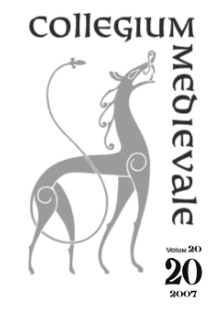Sammendrag
The time frame of the paper is the period approximately from the tenth to the twelfth century and it focuses on the Baltic Slavic principality centred on Rügen Island. Particularly on the development of a peculiar political system there. On one hand, the people of Rügen, called the Ranove retained an old institution of a tribal assembly, called in Slavic veche, despite emerging local elites and upper class. A common development among many mediaeval Slavic principalities. On the other, however, the most unique characteristics of their political system was the very prominent role of the pagan priesthood, revolving around a pagan deity known as Sventovit. The paper demonstrates that the Rügen Island the pagan priests were clearly a dominant political force, and in fact they were the real rulers of the principality. Therefore prior to the Danish conquest in 1168 the system can be described as a theocracy. This finding challenges the commonly accepted notion that Rugian priesthood played a much less prominent role and was the same footing the tribal assembly and local elite or "princes".
Forfattere beholder opphavsretten og gir tidsskriftet rett til første publisering av arbeidet. En Creative Commons-lisens (CC BY-SA 4.0) gir samtidig andre rett til å dele arbeidet med henvisning til arbeidets forfatter og at det først ble publisert i dette tidsskriftet.

